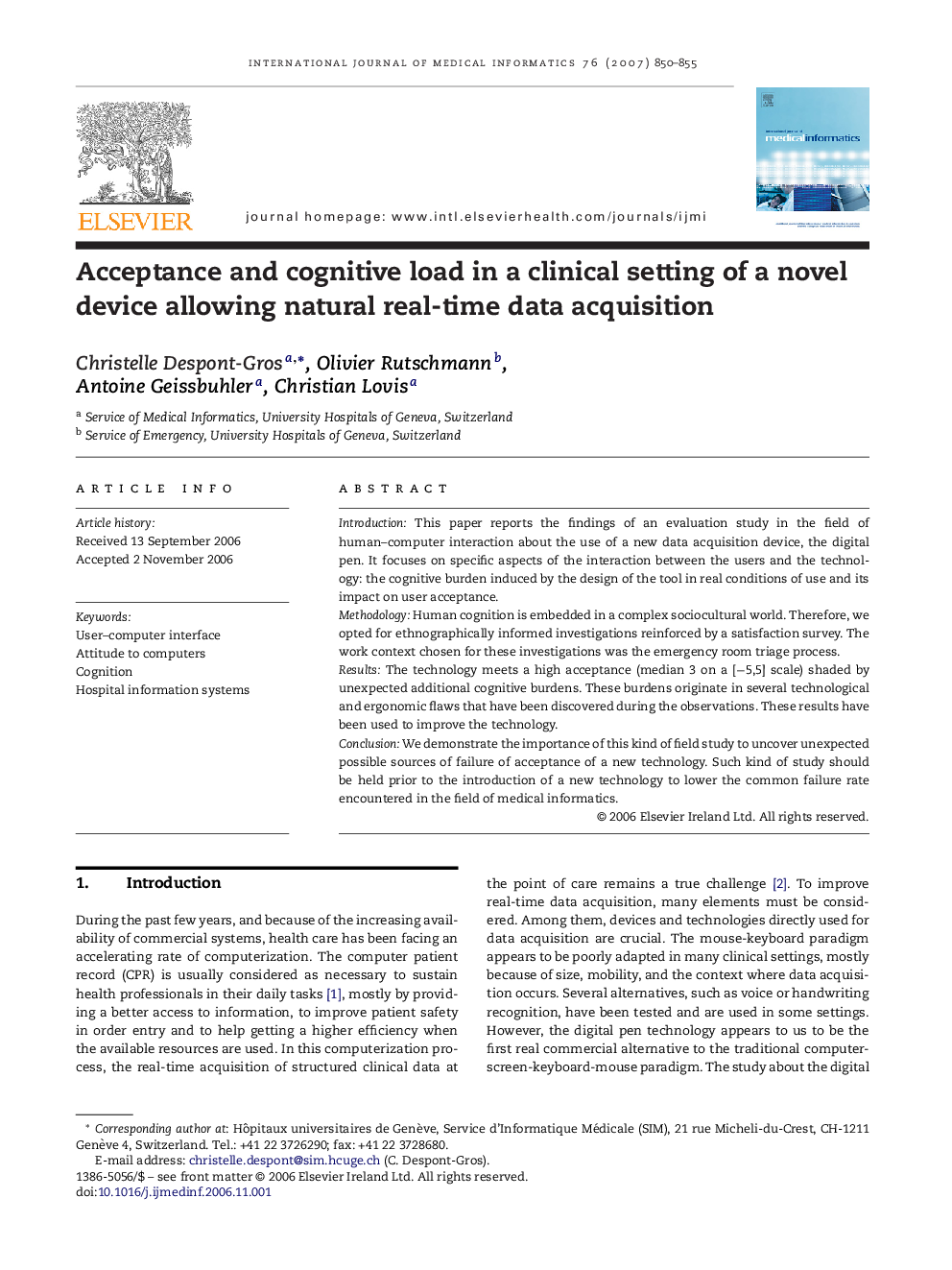| Article ID | Journal | Published Year | Pages | File Type |
|---|---|---|---|---|
| 516836 | International Journal of Medical Informatics | 2007 | 6 Pages |
IntroductionThis paper reports the findings of an evaluation study in the field of human–computer interaction about the use of a new data acquisition device, the digital pen. It focuses on specific aspects of the interaction between the users and the technology: the cognitive burden induced by the design of the tool in real conditions of use and its impact on user acceptance.MethodologyHuman cognition is embedded in a complex sociocultural world. Therefore, we opted for ethnographically informed investigations reinforced by a satisfaction survey. The work context chosen for these investigations was the emergency room triage process.ResultsThe technology meets a high acceptance (median 3 on a [−5,5] scale) shaded by unexpected additional cognitive burdens. These burdens originate in several technological and ergonomic flaws that have been discovered during the observations. These results have been used to improve the technology.ConclusionWe demonstrate the importance of this kind of field study to uncover unexpected possible sources of failure of acceptance of a new technology. Such kind of study should be held prior to the introduction of a new technology to lower the common failure rate encountered in the field of medical informatics.
